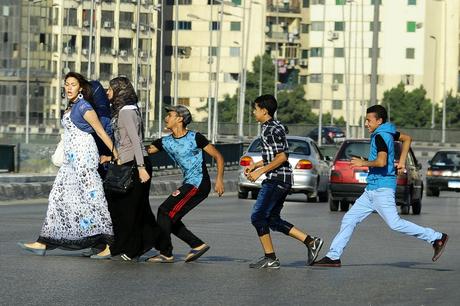
The arrest, following numerous online denunciations, of a student suspected of having harassed and sexually assaulted dozens of Egyptian women is considered a significant event in a country where impunity for this type crime has long been the norm.
Published on 10 July 2020 at 7 a.m. 00

La Presse
The man of 21 years, Ahmed Bassam Zaki, was apprehended at Cairo a few days after the appearance on Instagram on July 1 and of an account inviting its possible victims to denounce it, if possible supporting evidence.
“He has been doing it for five years without having to suffer consequences for his actions,” said the persons in charge of the page on condition of anonymity, before seeing the testimony flow by the dozens.
Several of them included tapes and text messages attributed to Zaki, who was fired from a prestigious university in the capital last year following a harassment complaint.
Egyptian justice announced Monday that the accused will be kept in detention for an additional two weeks while the authorities continue their investigation.
The prosecutor on the file indicated that half a dozen women had lodged a formal complaint, including one minor, and that the evidence gathered to date was sufficient to formalize a series of charges.
The suspect allegedly tried to sexually assault two women and then tried to force them to see him again by threatening to reveal embarrassing information to their families.
Fear of stigma is common in Egypt among victims of sexual assault, who are often accused of having encouraged the act of the aggressor through their behavior or their clothing.
Dangerous impunity
In a report published in 2014, several women's rights organizations in the country noted that most of the cases did not are never reported to the police. This fact promotes impunity which encourages violence.
The same report recalled that sexual assault represents a veritable epidemic in Egypt and has persisted under several regimes which have sometimes used it to drive women out of the public space, as was the case in particular in Tahir Square in the years following the fall of President Hosni Mubarak.
99% Proportion of Egyptian women interviewed as part of a United Nations study in 2013 who indicated that they had already experienced sexual harassment
A previous study had also revealed that 85% of Egyptians admitted having already sexually harassed a woman .
The #metoo movement, which found significant echoes in Egypt in 2018, launched a transformation that is happening today today is a pivotal time, according to some feminists.
Sabah Khodir, an activist who helped collect testimonies against Ahmed Bassan Zaki, welcomed a few days ago on Twitter to contribute by his action “to destroy the patriarchy and the culture of rape” in the country.
Better protected victims
She also welcomed the Egyptian government's decision to pass a law this week which allows the justice system to “protect the identity” of the complainants to prevent them from being subjected to retaliatory measures.
Maya Morsi, who chairs the National Council for Women, said in a press release that the Egyptian state confirmed, by this law, its will to attack sexual assaults by “giving a push” to the victims for get them to testify without fear.
Al-Azhar, a prestigious Islamic establishment in Cairo, intervened in the same vein to encourage victims of sexual assault to file a lawsuit.
“Silencing or looking away from these crimes threatens the security of society as a whole and encourages abuse,” warned its leaders.

